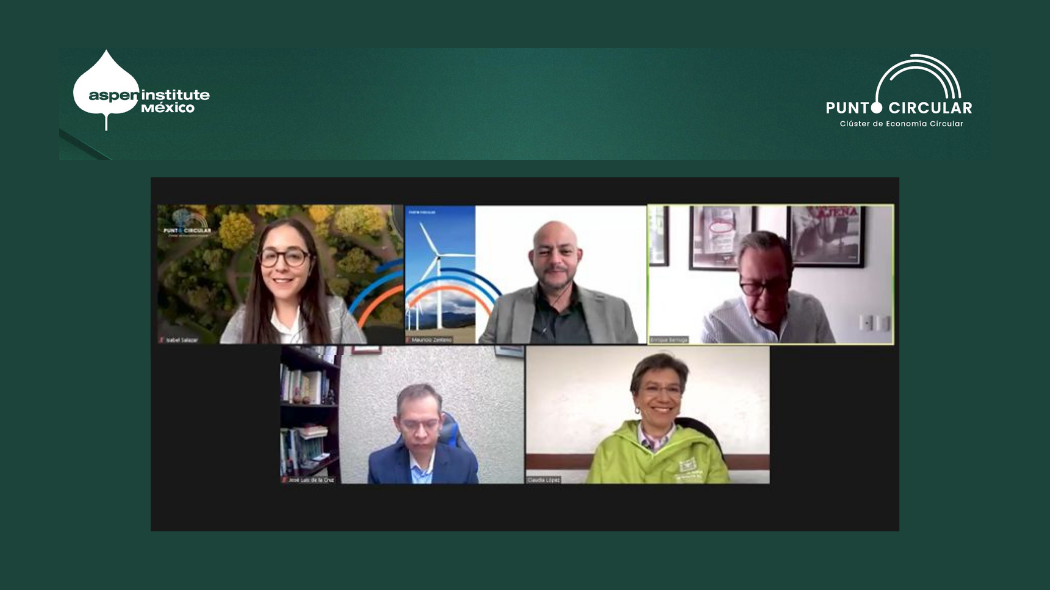On Thursday, Mayor Claudia López participated in the launch of Punto Circular, an initiative that seeks to accelerate the transition of Latin American cities and industries towards a sustainable development model based on the circular economy, which consists of sharing, renting, reusing, repairing, renewing, and recycling existing materials and products as many times as possible.
"Actions against climate change in Bogotá are grouped into three strategic categories: clean and sustainable transport, waste management in circular economy schemes, and green urban planning," said Ms López.
The aim of this meeting, called by the Aspen Institute of Mexico and Punto Circular, was to discuss a roadmap for cities in the region to adopt sustainable and inclusive circular economic models, based on innovation and the decarbonization of their productive systems.
"Bogotá is working on the implementation of a very serious Climate Action Plan to solve the city’s pollution and mobility problems, without sacrificing competitiveness. For this reason we have formulated a plan with clear goals and committed resources, so that by 2024 we can reduce our emissions by 15%; see a reduction of 50% by 2035; and be carbon neutral in 2050," said the Mayor of Bogotá.
In her speech, the head of the Colombian capital shared the actions that are being implemented to turn Bogotá into a regional benchmark with a sustainable and inclusive model that provides opportunities for innovation, competitiveness, and development.
"When it comes to the issue of solid waste management, Bogotá already has a biogas plant in operation and we are working on migrating to a heat treatment system for solid waste. We have already completed the feasibility stage and started the contracting phase. Bogotá will have a thermal plant for the management of its solid waste in 2024," she added.
Luis Gerardo del Valle, director of the Aspen Institute of Mexico, highlighted the work that has been carried out in Bogotá and expressed interest in delving into these issues of vital interest. "The circular economy is the most effective solution that has been thought of, because it is not an approach that slows down development, but rather one that considers fostering development while respecting the environment in the best possible way," he emphasized.
Isabel Salazar, co-founder of Punto Circular, said: "We have to understand how, through innovation and technology, we can materialize solutions to respond to environmental challenges and how, through data, we can measure the progress of this transition."
At the end of this meeting, Mayor Claudia López stressed the need to implement urgent actions to mitigate and halt the effects of the climate emergency, "Transport, sustainability, and climate change are not issues of the right or the left. Either we agree on long-term policies, or we disappear as a species," she said.
José Luis de la Cruz, director of the Institute for Industrial Development and Economic Growth of Mexico, and Mauricio Zenteno, consultant for the Americas Circular Economy Platform also participated in this dialogue amongst experts. Luis Gerardo del Valle, president of the Aspen Institute of Mexico, and Enrique Burruga, director of the Aspen Institute of Mexico, moderated the event.







